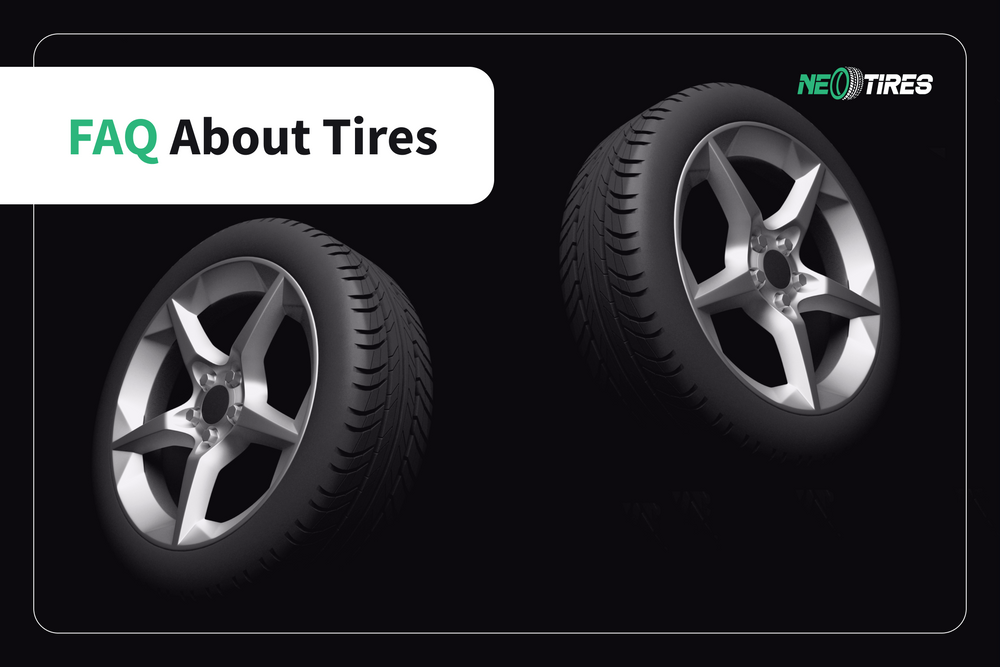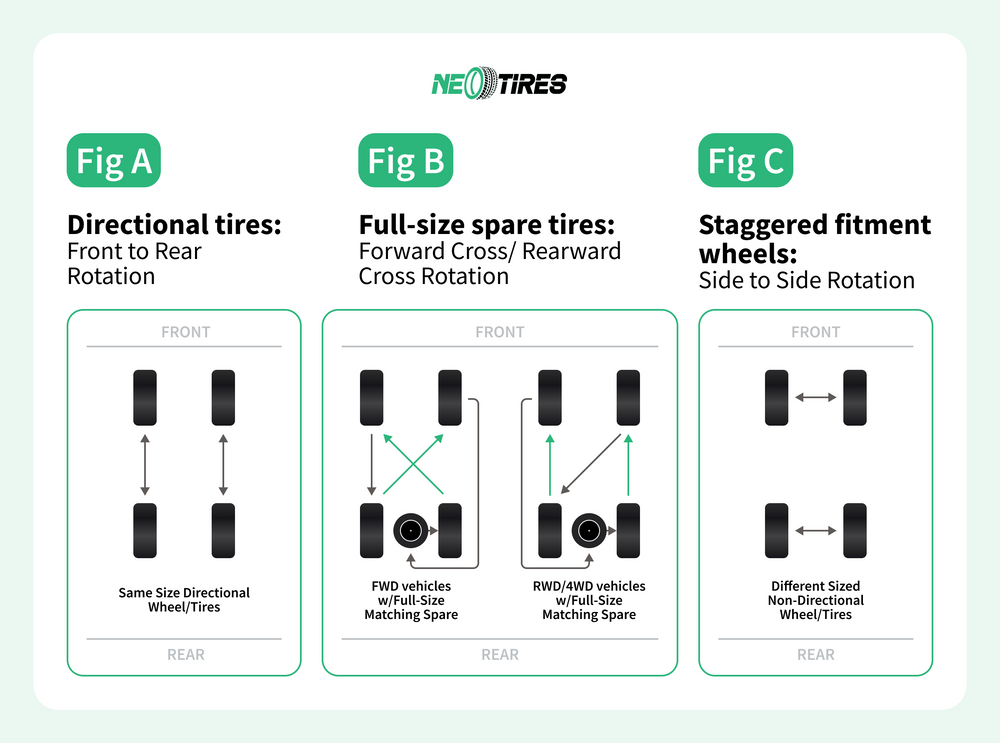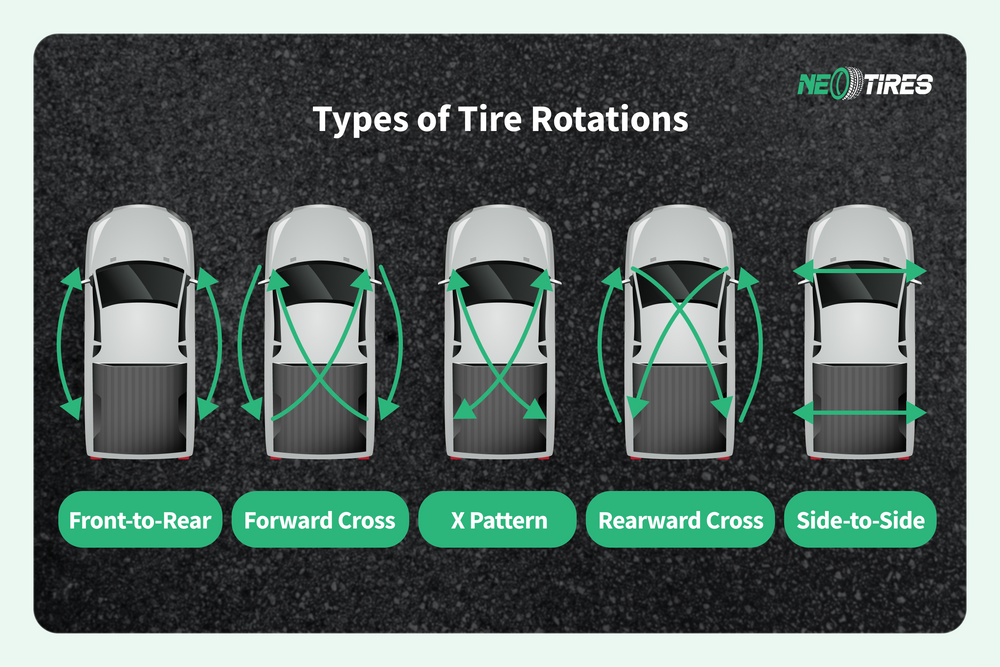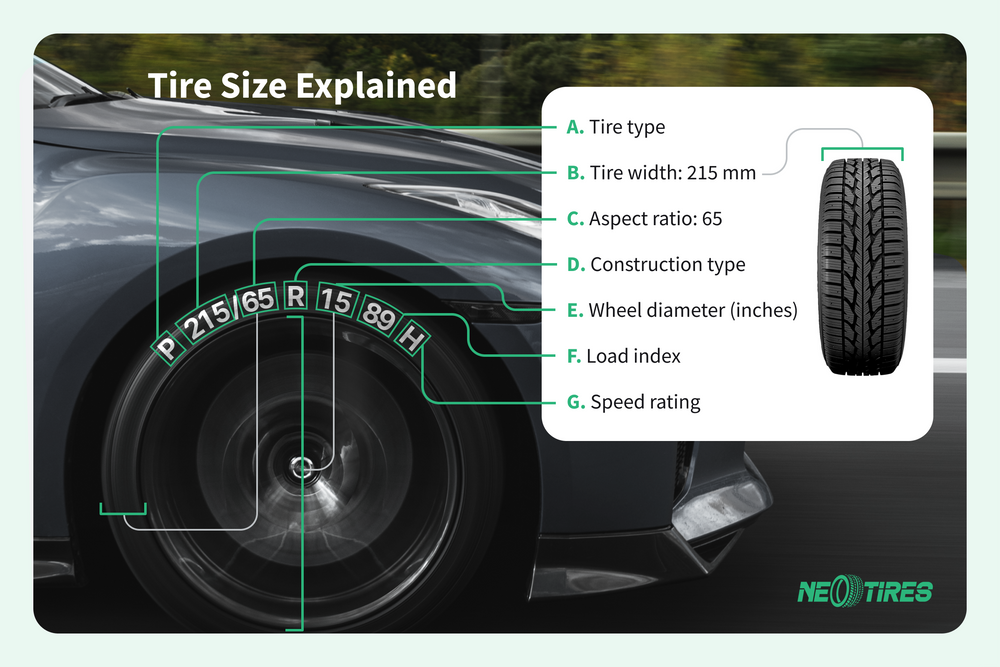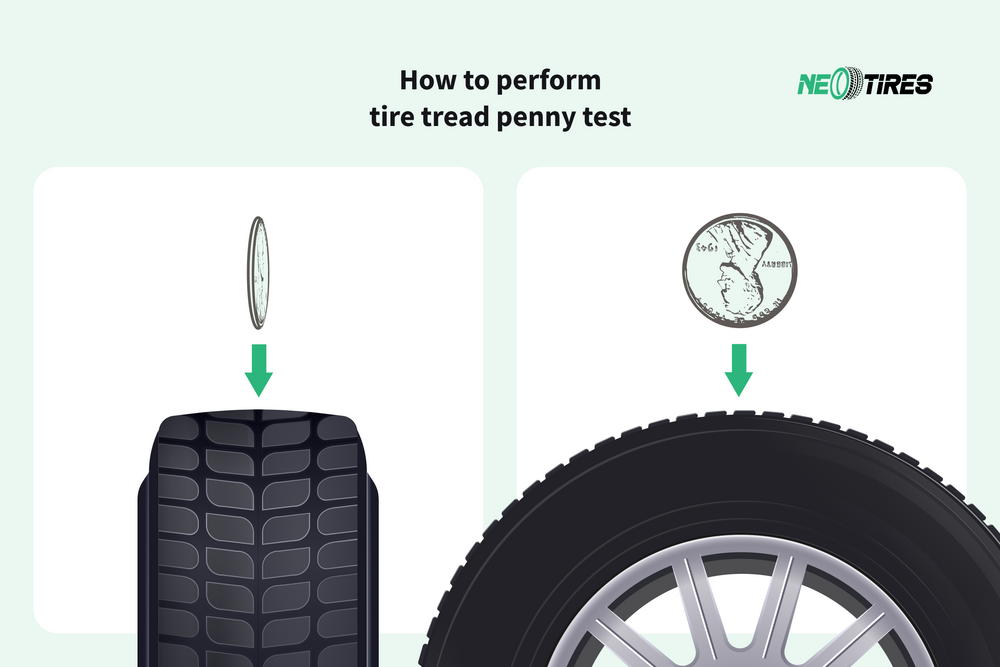Anyone who owns a vehicle knows that its stability and safety on the road depends, first of all, on its tires. Tires are the ones that assume a huge responsibility. They not only propel the vehicle forward but also ensure comfortable running, shock relief, fuel efficiency, as well as the strength to go over the most challenging surfaces.
In this sense, every driver must know something more about tires than just about their price and the conditions for which they are designed. In this article, we will learn about the most frequent questions that drivers ask about their tires. Most likely, you also ask yourself these questions and we will answer them in the most concise way possible.
At the end of the article, I hope that there are no unanswered questions and that you become a little more professional in this very important field for your traffic safety. So, let's delve into the matter, shall we?
How Long Do Tires Last?
This is one of the most popular questions in the field. That's why we will answer it first. Matter-of-factly, the question is usually followed by a series of complementary questions related to the influencing factors on tire damage. Also, drivers are curious to know what they can do to make the tires last longer. Fortunately, we have many experts in the field behind Neotires and we can help you on this subject.
No manufacturer, technician, or expert will give you an exact answer to this question. This is because too many factors contribute to their resistance over time. In addition, different manufacturers have different "recipes" for producing tires. Different materials, different technologies, and different additives - all contribute to the tire's longevity.
Statistics show that drivers travel between 12,000 and 15,000 miles every year. If we calculate in years, the tire would serve on average from 3 to 5 years in the context of proper maintenance. So, to get the most out of tires, drivers must contribute through care, judicious driving style, and technical maintenance. In addition, you can opt for the longest-lasting tires to benefit from the longest serviceability.
Below you have illustrated the influencing factors on tire longevity. So, if your priority is to have tires that last as long as possible, pay attention to them. 1
Tire age
Road hazards and bad conditions
Weather conditions
Injudicious driving style
Poor tire maintenance
How Often to Rotate Tires?
The maintenance of the tires that I mentioned earlier involves various technical processes. One of them refers to the periodic rotation of the tires, which is crucial for their "health". First of all, timely rotation extends the life and serviceability of the tires. So, here you have a partial answer to the number one question.
This means that if you rotate your tires regularly, your tires will certainly last longer. Other benefits refer to traction improvement following rotation. Also, the drivetrain is exempt from additional stress, and vibrations and tire noises are suppressed. Thus, tire rotation is a crucial procedure for the optimal condition of your tires.
The frequency of tire rotation depends on various factors. How often you drive, what type of roads you travel, and the type of vehicle FWD or RWD - all influence the tire rotation schedule. In general, rotation is recommended approximately every 5,000 miles.
But if we delve into the specifics, we must take into account the type of vehicle. If we talk about FWD and RWD vehicles, specialists recommend rotation once every 5,000-7,500 miles. But if it's an AWD, experts recommend rotation between 3,500-5,000 miles.
Either way, you can find the exact information in the driver's manual that you received when you bought the car. Each manufacturer comes with clear specifications regarding tire rotation.
How To Rotate Tires?
First of all, we recommend that you contact a specialist when the rotation time comes. The process may seem simple, but in fact, it hides specifications that only mechanical specialists know.
The rotation process depends on the type of vehicle and the size of the mounted tires. In addition, tire wear is also very important. If the tires develop uneven wear, the mechanic might see it necessary to rotate them in a scheme that you didn't even think of to even out their wear. Also, tire wear might negatively influence your suspension compounds.
There are several rotation schemes. The mechanic will apply the one suitable for your vehicle with all its specifics. Below, you have illustrated the possible rotation schemes that take into account the type of vehicle and the type of tire. For full information about tire rotation, check our previous tire rotation guide.
What Do The Numbers On Tires Mean?
Each tire has a sequence of markings on its sidewall. Each mark has a certain meaning that is extremely important. If you don't take these markings into account when you buy new tires, you might have the wrong tires, which leads to a series of severe side effects.
All tire markings are like a kind of "passport" of it. They talk about tire type, width, aspect ratio, construction type, wheel diameter, load, and speed rating. You can find these data in the most imminent sequence of the tire, which is composed of numbers and letters.
In addition, the tire also includes data about Max. cold inflation limit, DOT number, as well as tire composition and material used. I have graphically illustrated below a general picture of the tire markings. These will help you read the tire data more efficiently and choose the right sets for your vehicle. For more information on tire markings, check our previous article on tire sidewall inscriptions.
When To Replace Tires? - Penny Test Will Help You
In an ideal scenario, it would be good to have the tires checked by a technician from time to time. He will evaluate the condition thoroughly and inform you if it is time for a new set of tires. But if this scenario is not possible for some reason, you can check their condition by yourself.
First of all, periodic inspection of the tire is recommended. It is necessary to observe the condition of the tread and the sidewall to detect possible damage or irregular wear. If you identify any small damages, learn whether or not they are repairable.
The best way to know if it's time to buy new tires for your vehicle is to have them inspected by a professional, but there are ways to check them yourself. To meet legal safety standards in the U.S., a tire's tread needs to be at least 2/32" deep. If the tires do not meet the 2/32" standard or are approaching not meeting it, you should replace your tires. When replacing tires, it's important to select the right tire size for your vehicle. Not sure what size you need? Learn more about determining tire size.
A "healthy" tire has a uniform and deep tread. So, you should check thoroughly the entire surface of the 4 tires. Draw attention to the wear bar indicators on the tread. These indicate that the tread is too shallow and it is time to replace the tire. Any type of damage is a reason to call a mechanic. He will identify the severity of the problem and propose solutions.
Also, take into account the tread depth of your tire. This must not be shallower than 2/32'' which is the legal limit. The deeper the channels in the tire, the more efficient it is. To check the tread depth, you can use the Penny Test method. This helps you estimate the tread depth. If the depth does not correspond to the recommended norms, it is time to get new tires.
How Much Do New Tires Cost?
We do not have an exact answer to this question. However, we can share the factors that influence the price. Tires can cost between $35 and $1,000 if you want. As you can see, there is a big difference between the most accessible and the most expensive.
Many consider that the price of expensive tires is motivated by the brand's reputation. Well, there might be a sort of truth in it, but it's not just about that. More expensive tires are a priori more flexible to temperature changes. In addition, they include various technologies, are highly fuel-efficient, have higher performance ratings, and have more complex components. Altogether, they directly influence the final price because the development and research processes behind it also cost a lot.
Below, you have an estimated table about the average price of tires. This table does not refer to a specific size or specific vehicle. So, please take it as approximate information, leaving room for variations that depend on brand, composition, and performance ratings, among other criteria. 5
What PSI Should My Tires Be?
If you ask yourself this question, it means that you know how important the correct pressure in your tires is. And rightfully so, pressure plays a critical role in how the vehicle performs. Maintaining correct tire pressure helps you extend the life of your tires. In addition, the pressure evens out the weight distribution and reduces rolling resistance. Consequently, the tires make fuel consumption more efficient and ensure balanced and responsive rolling.
Every time you adjust the pressure, keep in mind that some vehicles require different pressure in the front and rear axles. For details, consult the driver's manual where you can find more specific specifications. Each tire corresponds to a certain pressure level. So, there is no definitive rule for all tires. For example, most passenger cars need about 31 PSI and 35 PSI in cold weather. If the pressure drops below 20 PSI, it is considered a flat tire.
Keep in mind that tires tend to lose about 1 PSI per month. Even if you have TPMS, it would be good to check the pressure with a pressure gauge once in a while. Also, keep in mind that tire pressure changes depending on the outside temperature. So, learn how to manage pressure fluctuations.
What Can You Do With Your Old Tires?
The concern about the tires thrown at the edge of landfills after they have served their purpose is huge. Tire rubber does not undergo the natural degradation process. As such, they become environmental garbage if they are not recycled or disposed of correctly.
If you have a set of tires that no longer serve you, we encourage you to dispose of them judiciously. If you have nothing to do with them, look for organizations in your area that can collect them. Such organizations usually send them for recycling and reuse for other purposes. Thus, you will contribute to the protection of the environment, which is a topic of major importance in the 21st century.
Alternatively, you could reuse old tires for decorative purposes for your home. There are plenty of DIY solutions in which tires would be used as raw material. Old tires could serve as table bases, plant holders, outdoor chairs, swings, stairs for gripping the garden, playground ladders, sandboxes, and many other interesting things. So, open up your mind for creativity and re-use tires judiciously for a better environment.
How To Choose The Best Tires?
Before answering this question, you need to understand what the term "best tire" means to you. Everyone interprets this term differently, so there are not many chances to find an exact answer. The best tire is the one that fits your specific needs.
This doesn't necessarily have to be the most expensive, but if it satisfies all your driving needs, then it's the best choice. At the same time, other drivers have different needs than yours. So, most probably, they will have other best tires than yours.
What we want to say is that you have to start by identifying the criteria needed in a tire. Think about the roads you usually travel on. Also, take into account the weather conditions where you live. Last but not least, decide how important the performance and fuel efficiency ratings are for you. To find the best tire, you have to look for the one that matches the criteria you defined.
Thus, you have a good chance of finding tires that fit your needs like a glove. The bottom line is that your neighbor, friend, or boss's "best tire" might not be the best solution for you as you all have different needs. So, choose wisely and select your tires exclusively based on your driving specifics.
Why Trust Us?
Every driver wants a reliable ally when it comes to the right tires for his vehicle. While the market offers so many products, few dealers offer assistance, recommendations, or advice. We set out to be different and stand out with a different kind of service. In this sense, Neotires is not just an online tire shop. Our goal is to identify the problems and difficulties that drivers face and come up with reasonable solutions.
Thus, we have gathered specialists from the tire and auto fields in our team who have a common goal: to solve drivers' issues by choosing the right tires. We believe that the right tires are the key to high-performance, comfortable, and safe driving regardless of road or weather conditions.
With that said, Neotires is more than a tire deals store. Here we review tires, we subject them to various performance and resistance tests. Our mechanics compare and analyze them from all perspectives. In addition, our content writers collaborate with experts in the tire industry to offer the most correct tips on tire maintenance, use, and driving safety. As such, here we learn, grow, develop, and share all our tire know-how with our end customers.
Finally, we are also committed to finding the most suitable tire deals. We do our best to find the right balance between premium quality and reasonable price. Join us to stay up to date with tire innovations, new products, best driving tips, and professional assistance! Here to please your tire needs, NeoTires!




